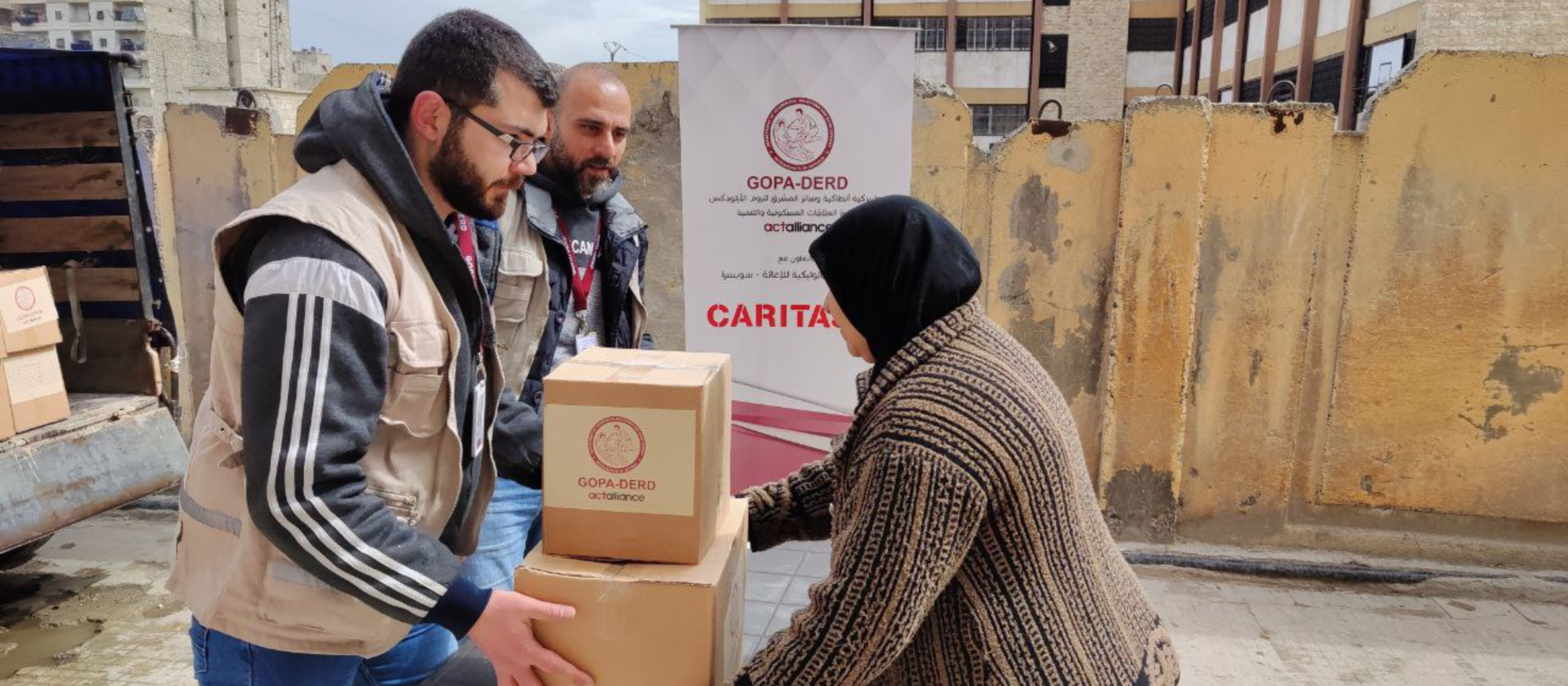

«Thousands of people are still missing»
The devastating earthquakes in Syria are causing a humanitarian catastrophe, with around 8,8 million people affected. Many of them are still homeless and cannot return to their homes, reports Wael Darwish. The Caritas officer says what the population needs most urgently now.
Rubble as far as the eye can see. People desperately searching for buried people with their bare hands. The pictures of the violent earthquakes of 6 February went around the world. In the meantime, the disaster has largely disappeared from the news coverage. But the situation on the ground is still precarious, reports Wael Darwish.
As Director Syria Crisis Response, he heads the Caritas Switzerland mission in Syria. The aid agency has been active in the war-torn country since 2012. This is why Caritas, together with its local partners Caritas Syria and the relief organisation GOPA-DERD, has been able to provide aid from the very beginning.
Wael Darwish, in Switzerland, reports are often only about Turkey. What is the current situation in Syria?
The situation is precarious. The devastating extent of the catastrophe is becoming increasingly clear. People are suffering greatly from the consequences of the earthquake and the continuing aftershocks. In addition to the approximately 5'900 dead and the countless injured, thousands of people are still missing. Hundreds are homeless, living in emergency shelters or with relatives and friends. A quick return to their homes is not foreseeable because they are either destroyed or threatening to collapse. We have also received reports of malnutrition among children. This increases the risk of disease, in addition to the already rampant cholera.
How has Caritas been able to help the people in Syria so far?
On the very first day after the earthquake, various teams went to the affected regions. They assessed what the population needed most urgently and distributed the first relief supplies. We were therefore able to provide emergency aid immediately. So far, we have distributed about 3'500 food, 2'800 drinking water and 2'400 hygiene packages. In addition, we have distributed more than 1'200 blankets and mattresses as well as nappies and solar lamps. So far, Caritas has helped around 3'500 families.
Working in a disaster area is always very difficult. How have you dealt with the situation?
The first priority is to help people as quickly as possible, which of course puts pressure on all of us on the ground. We can deal with it because we keep the overall goal in mind. We all work more than twelve hours a day, but we know that afterwards we can return to our families and sleep in our homes. Unfortunately, this is not possible for many earthquake victims. The fact that our aid is changing the lives of the affected population motivates us.
What do those affected need in the coming weeks and months?
The first priority now is to give people a home again. We help them rent accommodation or repair their houses. We are also working on repairing various schools. In this way, we want to ensure that the children and young people have safe access to education again. Many of them still stay away from schools because they do not trust the condition of the buildings or because their families had to move to other regions. In order to be able to help the people in a targeted way, we will support them with emergency cash aid. This way, they can decide for themselves individually and with dignity what they need most urgently. At the same time, the local economy will be strengthened. We also offer psychological support. Because many of those affected suffer from anxiety, nightmares and insomnia. And children in particular are afraid of loud noises.
How long will the people in Syria still be dependent on aid?
Overcoming the material damage will take years. Entire livelihoods will have to be rebuilt. It is crucial that all of us as a humanitarian community, as organisations or as private donors do not forget the people in Syria - not even in one or five years' time.
Written by Niels Jost
Further information
Header image: Hygiene-Artikel und Lebensmittelkörbe sind Teil der Hilfe vor Ort. © GOPA